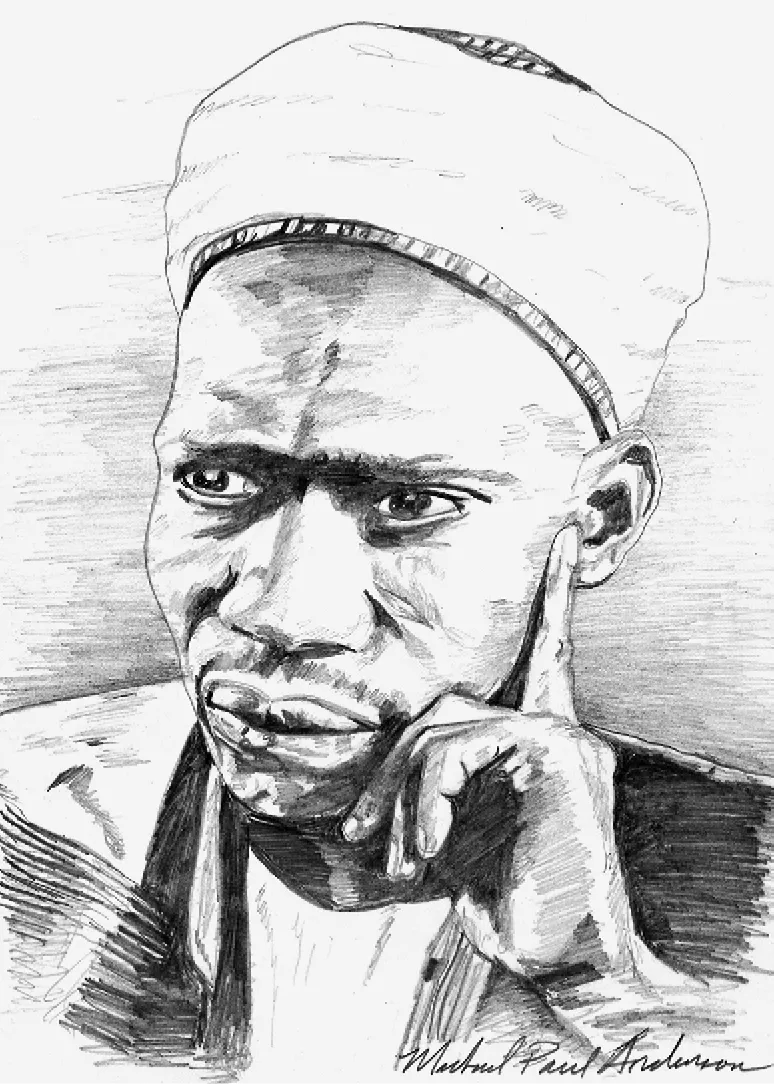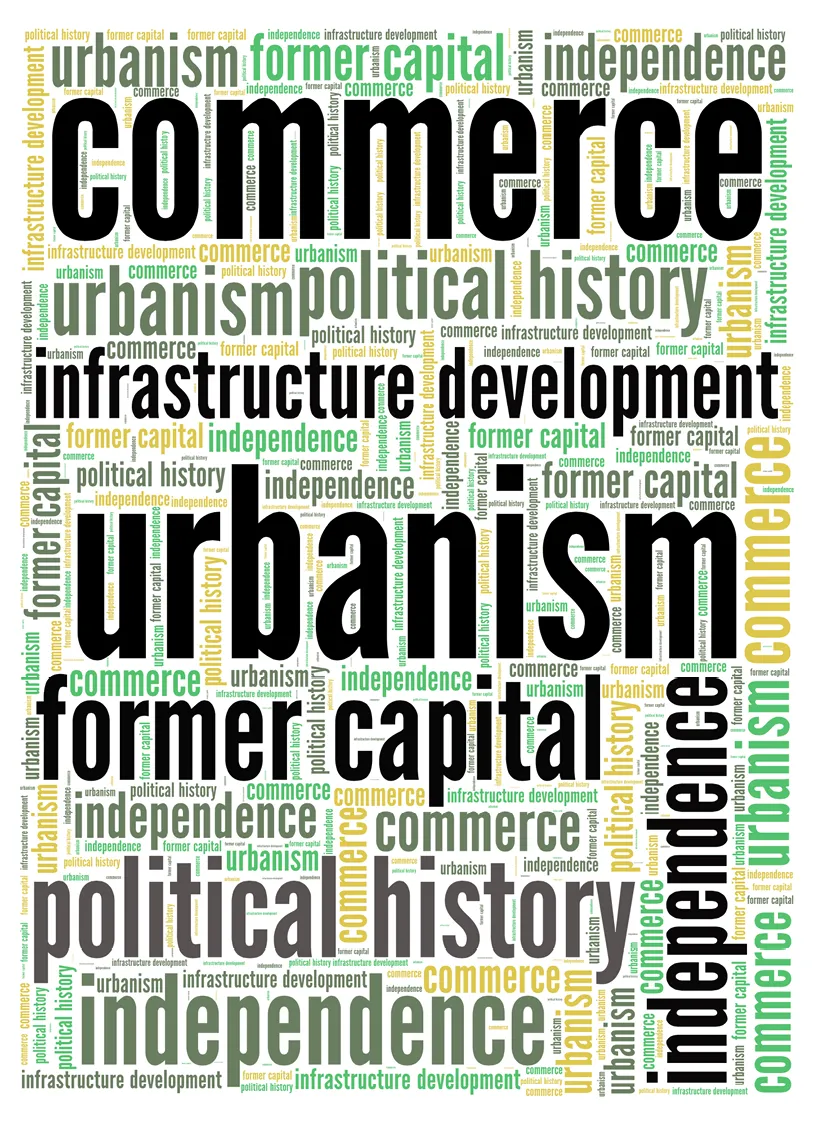![]()
Chapter 1
Defining National Heritage
“We, the elected representatives of the people of Nigeria, concentrated on proving that we were fully capable of managing our own affairs both internally and as a nation.”
~
Abubarkar Tafawa Balewa
Historical Inheritance
The defining struggle over the course of Nigeria’s existence as an independent country has been a fragmented national identity. For almost a century, the distinct ethnic groups of the country have been pitted against each other for the sake of political gains and economic dominance. There is a deeply ingrained mistrust of the powerful minority, which has wielded its power to exclude the majority from a larger and larger portion of the country’s revenue. Regional differences in religion, ethnicity, education and economic opportunities have limited the ability of Nigerians to accept each other and form a cohesive nation. In many ways, it has been in the interest of the privileged elites to keep cultural groups separate and conflicting with each other to destabilize any mass movement that could unseat them. The strategy of divide and conquer is old, but Nigeria has always remained capable of unity.
Under colonialism government policies placed Nigerian interests second after the British. International trade companies in Lagos were given better financial arrangements to the extent that regular traders and business people were forced out of the markets they helped create. Whenever economic depression struck, British companies would quickly pass on the economic hardship to the workers creating injustices that became too arduous to bear. During the economic depressions of the 1920s and 1940s, people in Lagos suffered from mass layoffs, unemployment and an overall stagnant economy, leading laborers and traders to begin seeking out alternative representation.
This desire for change served to catalyze stronger feelings of a national identity. With so many people interested in change, leaders who were able to engage with wider society emerged. Labor movements like the first railway strike and political parties like the National Congress of British West Africa were able to unite many diverse groups of people under the national identity of Nigeria.3 More specifically, people began to join together in order to empower their position as the rightful stewards of the land that the British had claimed and divided into two which later became three regions.
For the good of their nation, each distinct group of Nigerians could accept each other’s differences. As more people began to band together, there was very little the British could do to retain control over the government and the land. Eventually, the Legislative Council in Lagos was established to allow native Nigerians to participate in the governmental processes at the local level. By 1941, the Legislative Council held enough power to levy trade rates and organize their self-governance, making Lagos one of the first arenas for the betterment of the Nigerian people. From this point on, the decisions that were passed down to affect future generations were reached by Nigerian leaders and not foreign governments. With this first taste of government authority, the number of Lagosians that wanted to participate in the electorate process grew quickly. It was only a matter of time until independence was a demand on the lips of every Nigerian.
On October 1, 1960, Sir Abubakar Tafawa Balewa gave a speech as the newly elected prime minister of independent Nigeria. He gave that speech in Lagos, which was then the seat of the federal government. Speaking at Independence Square to a large crowd of supporters, he began with general salutations, but quickly moved on to express the inheritance that had been bestowed upon him and the country at large:
Words cannot adequately express my joy and pride at being the Nigerian citizen privileged to accept from Her Royal Highness these Constitutional Instruments which are the symbols of Nigeria’s Independence. It is a unique privilege which I shall remember forever, and it gives me strength and courage as I dedicate my life to the service of our country.
- Sir Abubakar Tafawa Balewa, Independence Day 1960
The first pieces of national heritage that Nigeria received as a sovereign nation were the “Constitutional Instruments” that officially enabled the country to grow and develop by its own prerogatives. For the first time in a century, the nation was entirely responsible for its stewardship. This was an important moment for every Nigerian and Balewa was right to suggest that it was a privilege delegated to him for the good of the entire country. Nigeria would now determine what values were passed on or replaced in subsequent generations of government and society. This was a cause for celebration as much as it was a cause for serious reflection on the proper course of an independent people. Balewa went on to say that he was indebted to the people who “have shared in the task of developing Nigeria politically, socially and economically,” but the “awe-inspiring task” Nigeria faced would determine the country’s place on the international stage. It was just the beginning of a long, shared journey. Nigerians were finally in control of their future as the rightful heirs to an independent and self-governing nation.
With independence, Nigeria was proud as a nation. The people had united to remove the colonial administration after 60 years of rule. The struggle required unity and compromise between Nigerians with very different beliefs and interests. Through national discourse and conscientious debate, new ideas began to spread throughout the country on what an independent, united Nigeria, with one national identity would look like. Lagos took a central role in developing this national identity as a main hub of government, commerce, intellectualism and fresh Nigerian ideas. The port city was incredibly valuable because of its location and huge commercial potential.
As a colony Lagos was entirely self-supporting.1 Thousands of Nigerians moved to Lagos to take advantage of the busy port, the massive economy that it supported and a number of other new opportunities including education which was crucial to the development of a national identity.
In Lagos, the spread of Western education allowed for the increased transmission and discussion of new ideas and national priorities. Literacy levels rose encouraging political engagement. Within the city, media outlets began to take up new importance in the course of daily events. Residents of Lagos were especially fortunate to have so many newspapers and magazines that supported the growth and spread of national sentiments. Some of the most important news organizations in the country were created in Lagos around this time, including The Observer, Nigerian Spectator, Nigerian Pioneer, Lagos Weekly Record, and Lagos Daily News.2 These newspapers gave the intellectuals in Lagos a place to follow political and social developments, but more importantly it also gave them a platform to speak their minds on the state of things and engage with their government in a meaningful way.
As literacy and political engagement rose, so did mobility. The port in Lagos grew to allow for larger and more frequent ship dockings. The railway was extended 700 miles into the interior by independence, and the Lagos Steam Tramway opened doors for many rural Nigerians to enter into the city. These critical infrastructure developments allowed more people to travel in and out of the growing commercial center that Lagos was transforming into.
Combined with the improved transportation developments, the spread of literacy trickled far into the corners of the country. People that worked and lived in the city could bring back their new ideas and skills to their rural homes. This empowerment led to the exponential increase in city populations across Nigeria but mainly in Lagos, with rural farmers relocating to fuel the increased rate of urbanization. This trend has continued till today because of the government’s continued dedication to improving infrastructure in Lagos. As more people came to live in Lagos, the city became a place for the start of a shared national heritage and a complicated Nigerian identity.
The city came to represent many of the best parts of Nigeria’s progress and status. By 1965, there were at least 1.25 million people living the Greater Lagos area. Approximately 43% of Nigeria’s industries were based in Lagos and the Greater Lagos area, and the port in Lagos handled 70% of the nation’s total imports and exports. The total tonnage of goods entering and leaving the port had increased by five times in a span of less than 20 years.5 This was at a time before the country’s abundant stores of oil had been tapped and the nation’s economic output was more diverse. There were thousands of new immigrants because Lagos was improving the lives of its people with social services, jobs and infrastructure. The biggest power in government was the voice of the people and leaders were listening. There was no better place to make a living and be heard.
Political parties and labor unions were useful vehicles for leaders with a vision and a commitment to uniting the masses. People were better able to choose leaders that best represented their interests. As time went on however, it was this aspect of democracy that divided the country into many fractured bodies. Once groups had been formed, majority parties could exercise disproportionate power over the minorities that had not secured power, and the minority groups soon had no way to meaningfully participate in the political dialogue. This was exacerbated by the discovery of oil and its subsequent domination o...



